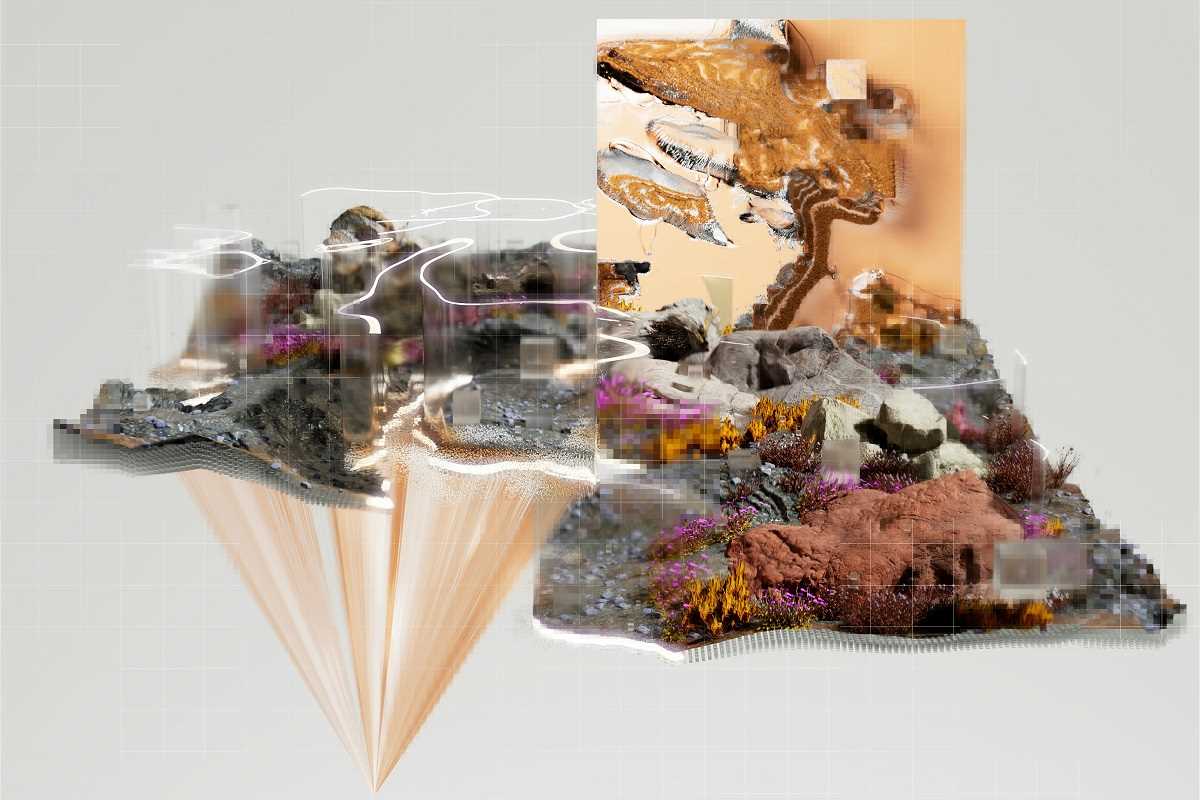Imagine being able to measure things billions of times more accurately than we can now. That’s the promise of quantum sensors, a groundbreaking technology that’s set to revolutionize the way scientists approach their work. From mapping uncharted parts of the Earth to improving healthcare tools, the potential for quantum sensors is enormous. But what exactly are they? And how could they impact careers in science? Don’t worry—we’ll break it all down in simple terms so you’re up to speed on this exciting trend.
What Are Quantum Sensors?
To understand quantum sensors, we need to touch on a bit of physics—but nothing too heavy! At its core, quantum science deals with the tiniest particles in existence, like atoms and photons (particles of light). These particles behave in some pretty bizarre ways compared to what we see in our day-to-day lives, and scientists have figured out how to harness these strange behaviors to build highly advanced technologies.
Quantum sensors are devices that use the unique properties of quantum particles to measure things with extreme precision. While traditional sensors rely on tools or basic signals to detect changes, quantum sensors tap into principles like quantum entanglement and superposition, which allow particles to have states that are interconnected or exist in multiple forms at once. These characteristics enable a level of precision that’s hard to achieve with conventional tools.
For instance, while a standard thermometer gives you a decent reading of temperature, a quantum sensor could detect tiny variations that reveal intricate details about molecular movement or environmental changes. That’s the kind of leap we’re talking about.
Why Are Quantum Sensors Such a Big Deal?
Okay, so now that we know what quantum sensors are, why is everyone so excited about them? Because they could completely change the game across all kinds of industries. These devices can measure things like time, gravity, magnetic fields, or acceleration with incredible accuracy.
Here are some examples of their potential applications:
1. Earth Mapping and Exploration
Imagine being able to create super-detailed maps of underground spaces like oil fields, caves, or even ancient ruins, all without digging or drilling. Quantum sensors could achieve this by precisely detecting variations in gravitational fields caused by different materials beneath the surface. This has huge implications for industries like energy, archaeology, and even city planning.
For example, oil companies often spend millions searching for natural resources. With quantum sensors, locating these resources could become faster, cheaper, and more accurate. Similarly, climatologists could map groundwater reserves more precisely to aid drought-stricken regions.
2. Healthcare Innovation
The potential for quantum sensors in medicine is mind-blowing. Current diagnostic tools, like MRIs and X-rays, already rely on advanced science, but they have limitations. Quantum sensors could measure changes in electromagnetic fields or detect molecular-level shifts in cells, allowing doctors to diagnose diseases at their earliest stages.
Imagine spotting cancerous cells years before they turn into a tumor, or monitoring brain activity with such detail that we gain new insights into neurological conditions like Alzheimer’s or epilepsy. Quantum sensors could enable minimally invasive techniques to track vital signs or detect conditions with tools that are small, fast, and incredibly accurate.
The ability to personalize treatment through these in-depth readings could revolutionize medicine as we know it. For example, by tracking a patient's unique physiological responses in real time, therapies could be adjusted far more effectively.
3. Space Exploration
Quantum sensors are already being talked about for missions to explore space. They can improve navigation tools by offering highly precise readings of acceleration and position.
Deep-space missions face challenges like harsh environments and communication delays. Quantum sensors, due to their precision and reliability, could help guide spacecraft more effectively or monitor gravitational anomalies to reveal new information about black holes, dark matter, or distant planets.
Astronomers might also use them to construct better telescopes or analyze cosmic phenomena that we can barely detect today. For instance, studying weak gravitational fields around black holes might help us understand the origins of the universe.
4. Transportation and Smart Cities
The accuracy of GPS could be improved dramatically with the help of quantum sensors. Today’s GPS systems often have a margin of error, which is sufficient for basic navigation apps but not precise enough for self-driving cars in urban environments. Quantum-enhanced navigation could make autonomous vehicles far safer by providing pinpoint location updates, even in areas with poor satellite coverage.
Smarter sensors can also transform infrastructure. Picture a smart city where quantum sensors monitor bridge stability, air pollution, and traffic flow in real time. These advancements would create safer, efficient, and more sustainable urban environments.
How Could This Change Careers in Science?
Quantum sensors aren’t just a cool technology; they are likely to reshape entire fields of study. For scientists, researchers, and technicians, this opens up entirely new areas of focus and career paths.
1. A Surge in Physics and Engineering Opportunities
The design and production of quantum sensors rely heavily on knowledge of quantum mechanics, electronics, and advanced software. This means people trained in these areas could see a surge in demand. If you’re a student or professional in physics, engineering, or computer science, specializing in quantum technology could open doors to lucrative and impactful careers.
Even hardware design will play a role, as the physical infrastructure of quantum sensors will need constant innovation for mass production and commercial application.
2. New Chapter for Scientific Research
Many scientific fields rely on traditional sensors to gather data. However, traditional sensors often come with a limit to what they can detect or the resolution they can achieve. Quantum sensors, with their exceptional accuracy, could allow scientists to revisit old questions and uncover brand-new answers.
For instance, geologists could use quantum sensors to track tectonic shifts more precisely, helping predict earthquakes. Ecologists might monitor tiny changes in ecosystems to refine conservation efforts. Neuroscientists could track brain activity down to a single neuron firing.
3. Cross-Disciplinary Collaboration
Quantum sensors will likely bring together experts from diverse fields like biology, chemistry, and environmental science. For example, ecologists might work with quantum physicists to develop tools that track carbon levels or biodiverse habitats. Similarly, chemists could join forces with engineers to create sensors for high-sensitivity chemical analysis.
Quantum sensors aren’t limited to one domain. They intertwine with countless industries, making them a truly interdisciplinary phenomenon.
Challenges to Implementing Quantum Sensors
Quantum sensors are exciting, but like all emerging technologies, they come with challenges.
1. Cost and Complexity
Building and maintaining quantum sensors is still extremely expensive. They require highly specialized materials, environments, and technical expertise. For instance, some quantum systems function only at cryogenic temperatures, meaning they need ultra-cold environments to operate effectively.
This isn’t practical for widespread use right now. Engineers are working to miniaturize components and reduce costs, but it’s no small feat.
2. Barriers to Commercialization
While the theoretical capabilities of quantum sensors are well-documented, turning these into scalable commercial products requires big investments. Businesses might hesitate to adopt unproven technologies, waiting until they see tangible success stories.
Additionally, integrating quantum sensors into existing systems, like healthcare diagnostics or transportation networks, won’t happen overnight. It requires not only technological upgrades but also training for professionals across many industries.
3. Technical Fragility
Quantum phenomena are notoriously tricky to control. Even small disturbances can disrupt measurements, so quantum sensors need to operate under very specific (and stable) conditions. Overcoming these hurdles will be key to unlocking their full potential.
Why Should You Care Even If You’re Not in Science?
Even if you’re not a scientist, quantum sensors matter because they’ll likely affect all of our lives eventually. Better medical tools mean earlier disease detection, improved GPS means safer driving, and smarter climate monitoring means we can fight climate change more effectively. Plus, industries like construction, security, and even gaming could jump on board with this tech in ways we can’t even imagine yet.
For students and young professionals, it’s worth keeping your eye on quantum technology as a growing field. The more you know now, the better you can prepare for future opportunities. Who knows? You could end up playing a role in making these sci-fi-sounding ideas a reality.
What’s Next for Quantum Sensors?
While quantum sensors are already being developed and tested, they’re not yet widely available. The technology is still expensive and requires specialized knowledge to produce and use. But with governments and private companies around the world pouring billions into quantum research, it’s only a matter of time before these tools become more mainstream.
For example, countries like Germany, China, and the United States have launched significant quantum research programs. Startups and tech giants are also jumping into this field, accelerating innovation.
If you’re excited about trends like this, there’s never been a better time to learn more. Take courses in STEM fields, follow research updates online, or connect with people already working in the quantum sector.
 (Image source: Midjourney)
(Image source: Midjourney) 





